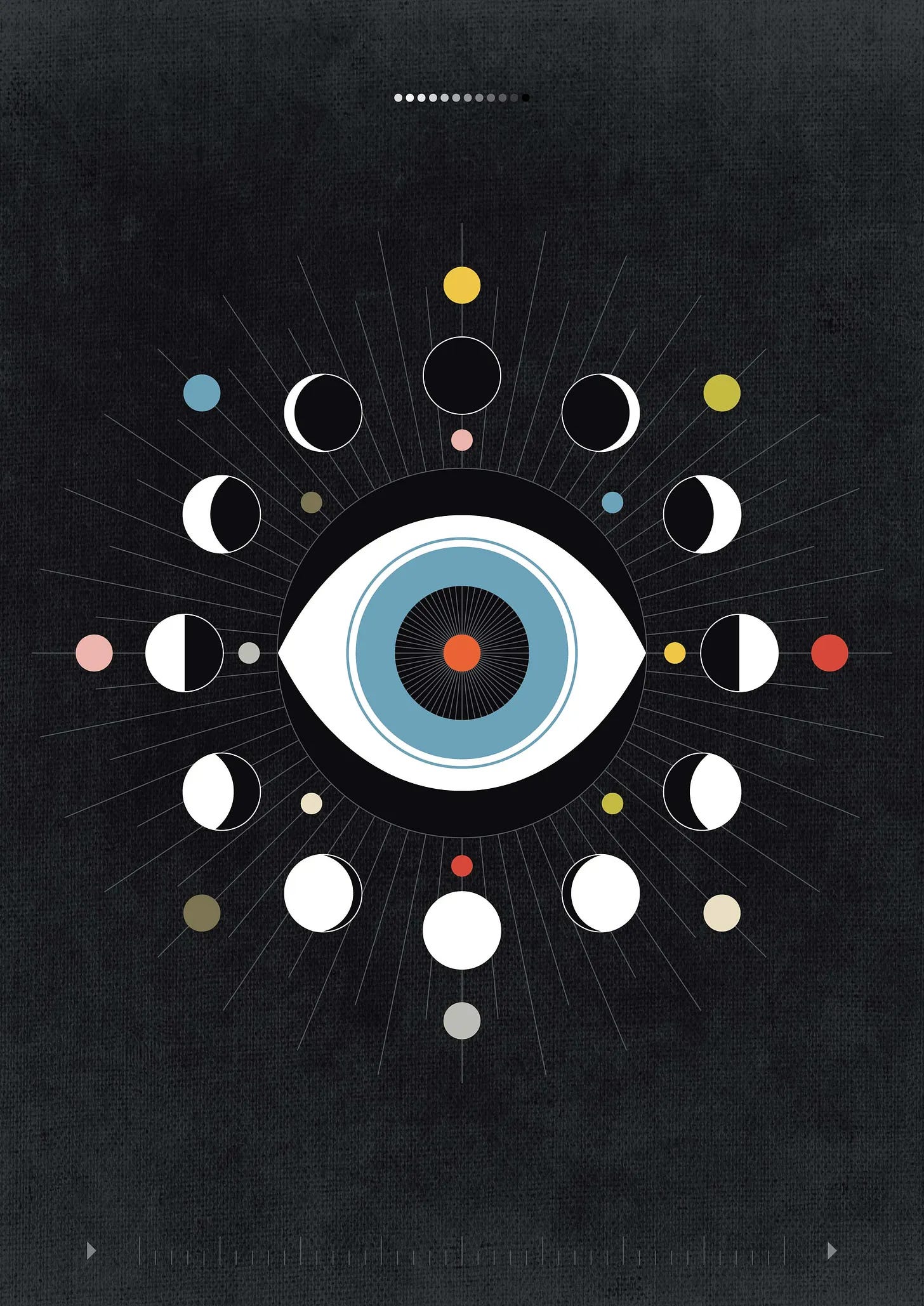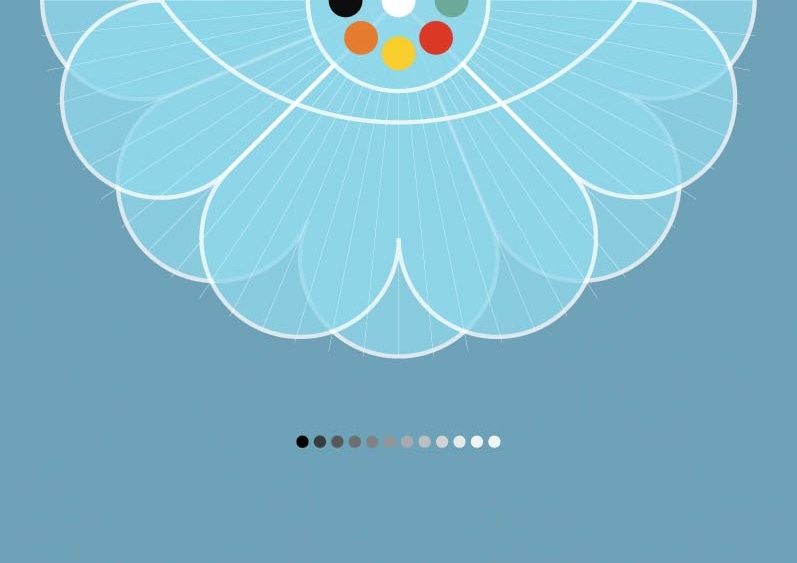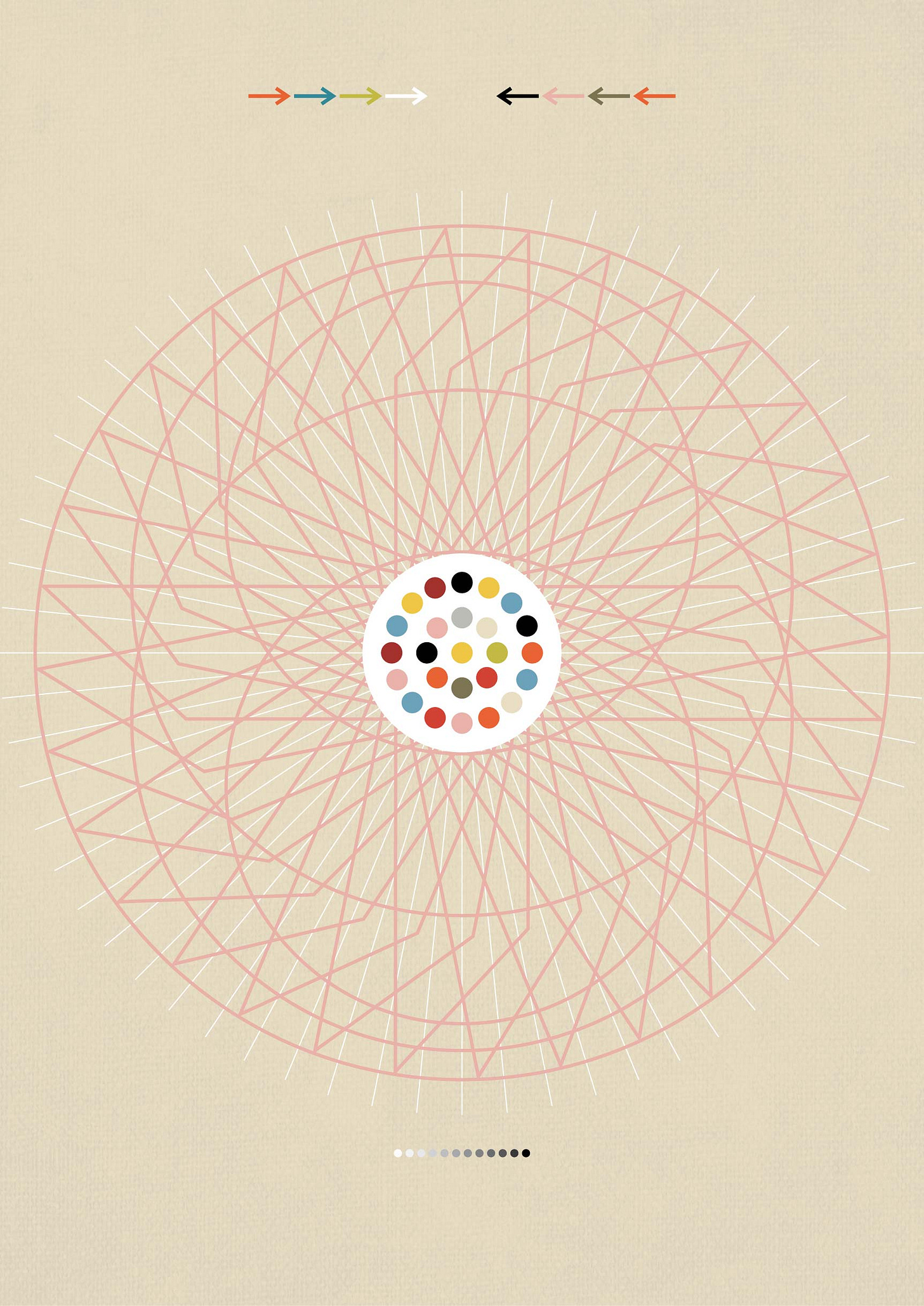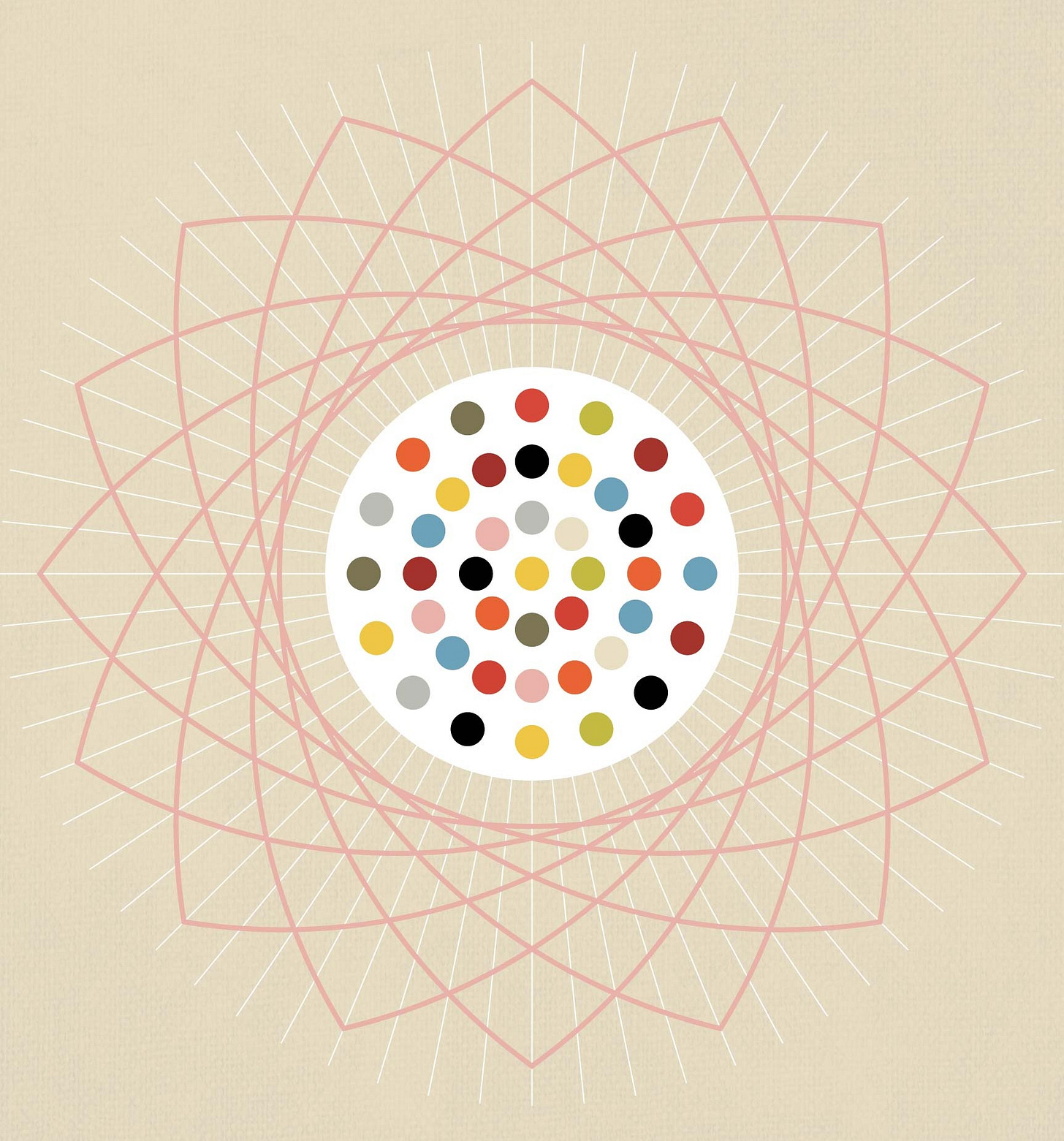The Calendar
Grappling With Faith at the End of Youth
My life as a Latter-day Saint has, in my mind, always been a kind of calendar. A calendar that teaches you how to live from sunup to sundown, from Sunday to Sunday, and from year one to a time when time no longer matters. The Calendar has always been there for me. Always. As if divinely inscribed in my genetic code. But sometimes, of late, I feel like it’s slipping away from me. That I am losing it.
In my earliest memories, every day starts the same. I roll out of bed and, even before I’ve cleared my throat, I’m in conversation with God. I wasn’t the best conversation partner; I am not still. But every day started the way it should, with a plea, a laundry list of gratitude, a call home. In those early years, all my siblings started the day this same way. The younger ones—I was the youngest—spent maybe seconds on their knees in prayer. The older ones spent minutes. Perhaps they were putting in more effort. Or perhaps, more likely, their conversations were filled with awkward pauses caused by impromptu naps, so irresistible in the first moments of morning. Regardless, once the ceremony was done, we all crisscrossed on our paths to the piano, to the kitchen, to the smaller piano, or to the bathroom. Seeing each other briefly in passing before school, we would all rejoin later in the evening for the next Calendar event.
Sometimes the next event was initiated by my father, sometimes by my mother. In any case, it was always interrupting something. But we all knew that we must come, that it was right to come, and so—sometimes easily, sometimes with resistance—we came. We came to read ancient texts lifted from golden plates and decaying parchment, now housed in a brown leather cover worn down by my mother’s devoted hands. We came to hear stories, learn truth, and, if we were lucky, catch a glimpse of some too-personal insight scribbled in the margins. My mother’s annotations were often meaningless to us, but other times they offered peeks into the workings of her mind, divulging things that no child could, or maybe should, understand about their mother. Every night ended in a test of willpower almost too great for children that age. The challenge, of great moral significance, was to keep one’s eyes shut the entire time while some pre-selected individual permuted stock words and phrases, sending them upward, ending the day the way it started.
Days were bookended in this manner. But days only served to create weeks. The Calendar functions on many scales, from symmetric days to unfathomable eternities, but it is the week that is its fundamental unit.
A week begins and ends on Sunday. It is a slow start and a slow finish. Once our parents had lifted us from our beds, we would fill a car and then a pew. We would spend an hour in that pew. The older children napped on adjacent shoulders while the younger children played with action figures and ate Cheerios. Anyone who could pay attention listened to that week’s selection of neighbors-turned-sermon-givers and broken four-part harmonies. Finally, a tired middle-aged man would close the meeting. Then, everyone coping with their Wonder-bread breath in their own way, we were shuttled off to spend hours two and three in classes with our peers.
As a young child, hours two and three were filled with teachers desperately striving to uplift, wrangle, or simply appease their assigned menagerie of children. We spent half of the time in tiny classrooms with teachers trying to convey gospel principles through stories, scriptures, discussions, and games. We spent the other half of the time in a large common room, with leaders still trying to teach gospel principles, but this time through music and more games. These hours were chaotic, bipolar experiences. They were full of extreme hunger and excessive sugar. They were full of reverence and riotousness. They were organized and not organized enough. They were fascinating and boring. They were not all that different from life.
Exhausted from the three-hour ordeal, we would all collapse into the real work of the day—rest. Sunday naps were sacred naps, and we all participated, except for Mom, who managed nap schedules and treasured the intersection of our naps as rare time for herself. After naps, we would participate in life’s most important activities. We would play catch with Dad, read books, play games, not do homework, and eat copious amounts of roast beef and gravy.
I think back and try to hear the sound of Sunday. It is silence. Organists and choirs filled our home with beautiful music that became muted by its familiarity—eventually it only registered as white noise. We spoke and we laughed, but everything in memory is blanketed by a pleasant nothingness. The absence of life’s daily hassles forcefully reset the mind, sending it into the coming week as a clean slate.
Monday days were just days, but Monday evenings were public statements of priority—our family and our faith above all. Nothing interfered with Monday evenings. We opted out of practices, games, and entire teams if they attempted to stake claim to this protected time. One might expect an eleven-year-old to be resentful after having to quit his basketball team because they had signed up for a Monday-night league. On the contrary, it was deeply stabilizing to know that this family could slow the rush of life—warding off the world for a few hours to sing about popcorn, run races up the stairs in our underwear, eat chocolate-chocolate peanut butter chip cookies, and just be family. We talked about religion, sure, but the point was that our faith was family. And our family was home.
Tuesdays never made sense to me as a youth, but I suppose they were a miraculous product of what happens when entire communities are on the Calendar. Somehow, and for some reason, parents gave up their evenings to parent someone else’s teenagers. The entire neighborhood’s youth population (not really, but the rest, the nonattenders, were invisible to me) would come together to be taught, entertained, and babysat by a cadre of adult volunteers. We would learn knots, go camping, play basketball, eat ice cream, rake leaves at widow so-and-so’s house, and generally wonder why we were there. But we went, and it was good.
Wednesdays through Saturdays passed like a dream, full of important nonessentials. We did the school thing. The sports thing. The music, art, and whatever else thing. But these days flew by, and little was processed until things slowed down again on Sunday. The start, and the end.
These weeks built a childhood, an adolescence. They were our birthright. They were strange (and at some point we became aware that they were strange), but they were a sure foundation. A moment of chaos, grief, or pain could strike, but in those young years, it was hard for such a moment to last. It was hard to truly suffer when you knew that in a few days you would be in a pew. The next evening at home eating cookies. The next surrounded by peers and volunteer parents. And on, and on, and on.
The Calendar comes with a standard set of key life events, scheduled by God, or if not God, a quorum of twelve men whose collective age and wisdom surely sums to that of most deities. For Children of the Calendar, the majority of events occur at fixed points, early in life. They come at eight, twelve, fourteen, sixteen, and eighteen years of age. Each comes at a formative moment. Each is an opportunity to deepen one’s commitment to a community that transcends time but not place. During each, covenants are made horizontally and vertically, building out the structure of the cosmos. When I was eight, I accepted the invitation to the first event and, in so doing, committed my rather sober mind to timeliness. I would be prepared for each event, at the right time. I would be who the Calendar was designed to make me.
By junior high, I had mastered the Calendar. I did not fully grasp its significance, but this did not hinder a near-perfect performance. I began adding to it. Now, every Thursday morning before sunrise, I would pay a visit to the temple perched on the mountain overlooking my home. In the dark, the temple is uplit and visible for miles across the valley. A golden angel Moroni balances atop the sharp central spire that rises from the glowing white stone—he beckons, calling me into the Lord’s home. I ascend the mountain and enter. His house is staffed by elderly Saints, draped in white. They shuffle through granite halls, whispering. When I arrive, they are not surprised that I am accompanied by ghosts—ancestral ghosts, long deceased relatives awakened by my diligent internet sleuthing, stirred by a child’s remembrance of their lives. I am guided to the edge of a large basin, held on the backs of twelve stone oxen. The warm baptismal water hugs me as I descend. My spirits, my family of generations past, watch from the edge of the basin. They vibrate at a low frequency as they hear their names read aloud, producing a deep hum that doesn’t quite pierce the veil but reverberates inside of me. They witness as I am submerged in the water, and then, with grateful hands, they lift me gently out, dripping. Thirty minutes later and still trailing threads of eternity, I descend the mountain, enter the earthy brick structure of Corner Canyon High School, and sit down to learn the quadratic formula. Surrounded by mortals again.
Through junior high, the Calendar was almost exclusively a source of harmony in my life. It was simple and authoritative. It provided a clear, glowing vision for my life this week, next year, this life, and the endless time after that. By this age, I understood and embraced the person that the Calendar was going to make me, the person that my eight-year-old self had committed to becoming. I knew each necessary step along the path and when it would happen. I derived profound comfort in a good life mapped out, start to nonexistent end.
High school brought challenges to life within the Calendar. Initial difficulties were purely logistical. At this point, I was somewhat experienced with, and probably addicted to, meeting and exceeding others’ expectations. Determined to shine, I approached my academics and athletics with zeal. They soaked up my time like a sponge, and the first victims were those incomprehensible Tuesday evenings. Life was full of deadlines and commitments, and I couldn’t justify spending the hour with volunteer parents and increasingly unenthusiastic youth. These absences were of no practical significance; but they symbolized an encroachment. This was some foreign, uninspired calendar forcing its way in. I say forcing, but I allowed it, giving way to the perceived pressures of life.
At the same time scheduling pressure was building, I began to encounter difficulties with something even more foundational than the Calendar. In my head, there exists a set of spiritual truths. Many have been gifted to me by my parents or faith community, while others have been earned through experience. These truths are as fundamental to the order of my inner life as chemical bonds are to the order of nature. They bind together all my disparate, lived experiences into a coherent narrative and point me in the direction of a meaningful life. Throughout high school, many of these truths revealed themselves to be brittle. During these dramatic years, I was confronted with a series of bitter ironies. Things that shouldn’t have been true, couldn’t have been true, and yet were true, stared me in the face. Prophets speak for God, and yet prophets can be wrong, horribly wrong. Heavenly Mother is a deity coequal with Heavenly Father, and yet earthly mothers are conferred no religious power or authority that is unmediated by earthly men. God loves all Their children, and yet God supposedly only works amongst the seventeen million of them around the globe who fortuitously found their way into this American church. Slowly at first, and then with shocking rapidity, many of the bonds of my inner life shattered into dust. Each loss caused my stomach to drop. It was as if I were in a prolonged fall at the end of a dream. Without these truths, the Calendar could not be justified. Without the Calendar, I would be lost in time.
I wandered alone through crowded high school halls, staring with vacant eyes into a world that I once saw clearly but was now fading into a cold, empty black. I strained my eyes, searching for glimmers of light. I went through the motions of taking tests, submitting papers, and sitting through class, hoping that in those haunted, hallowed walks from chemistry to history, I would come to understand something of actual import. I would rediscover some familiar truth. I would find something with which to rebuild.
Why did I exert my mind mining for material with which to rebuild? Why did I stare past the vibrant faces of my peers and into the vast emptiness of a receding world? Why did I ignore the teeming life around me, instead searching for signs of life in another realm? Because I knew. I knew I couldn’t sweep away the dust of those shattered truths. I knew that if I searched through that dust on hands and knees, mostly knees, I would find specks of gold.
And I did. I found softer truths, of similar form but holier function, to replace the hard truths that had crashed against the rock of reality. I began forming new bonds, cautiously. I packaged the truths I found with a measured dose of uncertainty, infusing each new bond with some much-needed elasticity. Prophets can be inspired to speak for God, and whenever they do, they do so imperfectly because they are imperfect. Heavenly Mother is a deity coequal with Heavenly Father, and earthly mothers lack religious power and authority because of the near-universal sickness of patriarchy and not because of divine will. God loves all Their children, and this no-longer American church is one important tool for making that love accessible to all. At times, the process felt like building a sandcastle at the bottom of the ocean. Hopeless, too much pressure. But when I found a spiritual truth, a truth that was resilient, it was electric. My soul would sing, my previously vacant eyes would brim with directionless love, and then I would continue. I continued the search, and by the end of high school, I had rebuilt my inner life. Not every bond in the original structure was added back, but I had rebuilt it enough to save the Calendar from free fall. My vision through time, of my future, was a bit cloudier now that the Calendar was supported by ambiguity. But the clouds were nonthreatening. Their very presence was a reminder that they were part of a larger landscape.
Nevertheless, the crush of academic and other pressures continued to be a threat to the Calendar, and so the end of high school and the start of the next event couldn’t come soon enough. The next event was a Latter-day Saint mission, a respite from regular life but itself the furthest thing from respite. It was an all-consuming, unceasing event that lasted from age eighteen to age twenty—a perfect tithe on life. It is the institution’s most concerted attempt to sear the Calendar into the hearts of the rising generation. I found myself suddenly living in the most southern tip of Texas, in a valley with no mountains, new language in tow, grinding through the most confounding experience of my life. These years cannot be explained. How does one explain being nineteen and the ecclesiastical leader of a congregation composed solely of ex-gangsters? How does one explain the thrill of being a teacher, janitor, spiritual guide, landscaper, marriage counselor, pseudo-exorcist, therapist . . . and the simultaneous pain of being nothing at all? How does one explain the joy of committing oneself completely to the well-being of others, and the agony of not always doing it for the right reasons? One does not. Some say these were the best two years of their lives. Others say they were the worst two years. Still others say they were the best two years for their lives. They are all lying. Secretly, they are still processing. They will always be processing.
One of the great ironies of these two years is that while we (myself and an assigned companion) were busy onboarding newcomers to the Calendar, we ourselves were living a much more regimented and wholly unsustainable version of it. The daily schedule is tattooed into my mind: Wake up at 6:30 a.m. Pray. Exercise for a half hour, eat for a half hour, get ready for a half hour. Pray. Study for an hour. Pray. Plan your work for every half hour remaining in the day, for a half hour. Pray. Pretend to be an extrovert for two hours while attempting to talk to people who want nothing to do with you. Lunch. Learn a new language for an hour. Pray. Leave the apartment until ten o’clock at night, serving and teaching and facing a lifetime’s worth of rejection. Be the blessed beneficiaries of the greatest generosity and the cursed collectors of the vilest vitriol. Come home. Collapse. Pray.
In retrospect, I was fortunate to spend almost 180 of these taxing days in Sinton. Sinton is a blip of a town smooshed between fields of cotton, with a population of stray dogs that rivals that of the humans. There is a main street with a dollar store at each end. There is a church where the Mexicans used to go and a church where the whites used to go. There is an equal number of family-run auto shops and family-run restaurants. And there is a symmetric smattering of houses on either side of the town’s equator. Time here was measured in conversations with neighbors, in Friday-night football games, and in annual agriculture shows. Not in half hours. It was uncomfortable to try and force our fast-paced, minutely planned schedules onto a place where time hardly existed, and so we slowed a little. We tried to focus on what really matters, like pristine front lawns. For three months, we dragged a green metal wagon through the streets, borrowed garden tools clanking in the back, and offered our hands. At Christmas, we adorned the wagon with lights.
Through this and other means, we met a small collection of beautiful souls who made the Calendar their own. They lived it authentically, in individualized ways, informed by their diverse lives. There was the Moreno family. They had quit street life some years back when they first started living the Calendar, but the swanky style and family-first attitude of the gangs never left. The dad was a short, heavyset man with a walrus mustache and a debilitating limp. When he would heave himself up by his cane into his massive, siren-red F-150, all that was visible through the windshield was the glint of the large silver rings that adorned his right hand, resting atop the steering wheel. Everyone else in the family drove classic cars they customized themselves. On Sundays after church, the family cruised slowly through the streets, parade style, trunks open, blasting bass so deep that the doors of half the town rattled in their frames. Somehow they lived the Calendar without an extensive supporting community or hierarchical oversight. Their relaxed, family-above-all approach was protective. Despite their difficult lives, the greatest tragedy they reported was when their jeweler two towns over, who provided them with their thick gold chains and dazzling diamond studs, was shot dead by his jealous elderly father.
There was also Jeff. When I first met Jeff, he was sitting on the step of his porch, streams of vape swirling violently around his unruly beard and shiny bald head, his shirtless torso a mural of anime characters inked onto a pale, freckled canvas. He looked like a dragon, and he was a dragon, of sorts. He was a single father with a knack for nurturing, keeper of the light in his young daughters’ eyes. The Calendar can be overwhelming for parents without a partner, but Jeff, seeing the spark it brought his girls, determinedly came home from long days of work in the sewers to guide his family through the ropes of the Calendar.
There were others. A broken family piecing themselves back together and giving each other grace. A young man buzzing on six hundred milligrams of daily caffeine, looking for a stable pattern for life before heading off to boot camp. They were all living proof that the Calendar could be lived in different ways, and different was good.
At the end of those Texan years, I stumbled off the plane and into the rest of life. I was beyond weary. The last two years had been in turn dizzying, traumatic, exhilarating, and exhaustingly meaningful. And yet, upon seeing my family for the first time in two years (and the first time all together in six), I felt lighter than ever. A staggering weight of responsibility had been lifted from my shoulders, and I was excited to live my life again. The only problem was, I came home an adult.
The Calendar exists for adults, but it’s different from the one I lived growing up. It is centered around re-creating the Calendar for your children, passing on the birthright. I don’t have children. In fact, most of my time is spent outside the secure bounds of a formal family structure. Even when I go home—home home, the home I grew up in—it is not the same as before. It is not the same, and not just because we’re almost all adults now.
At some point in the blur of those two mission years, I got a call from my oldest sister, announcing her resignation from the Calendar. I know it was a Monday, because Monday was the day we could talk to family. A few years after that, my oldest brother quietly followed suit. Growing up, we always had two fundamental things in common: blood and the Calendar. Now, it’s down to blood. At Thanksgiving, Christmas, or any other time we might all be home, there is joy, lots of joy, but there is also a discomfort, a loss. Days now start in myriad ways. The evening event still happens, but discreetly. Not everyone receives the call to gather. All are welcome, but the event is advertised via text and, out of respect, only to those still on the Calendar. Instead of gathering around the ottoman in the family room, we gather in someone’s bedroom. This preserves the center of the home as a neutral space.
Sundays now begin with separation. Some go and others do not. Each is presumably happy with their choice; everyone would be happier had choices aligned. The experience for those who fill our now smaller pew is altered. Shoulders have a different function now. While they were once for naps, they are now a metric for how the meeting is going. If my mom’s shoulders are relaxed, I know to look for tears. Tears mean her heart is touched, not wounded. If my mom’s shoulders are tense, I know something has gone terribly wrong. Occasionally when this happens, she and I will discuss the offending topic when we get home. Other times, she instead recedes to her room, and, later that evening, I will receive a text. She will apologize for whatever negative verbal reaction she let escape, typically nothing more than a terse critique. I require no apology; I felt it too.
When a visit home comes to an end and the adult siblings return to their lives scattered across the country, there is sadness. We will miss each other. But there is, I think, a regrettable and unspoken sense of relief. On your own, you can live according to whatever calendar you like without being confronted by the sorrow of time experienced differently.
Back on my own, I struggle to preserve the Calendar. Some of the challenges are, once again, logistical. In my chosen path, I stare far more at screens than I do at eternities. On Sunday afternoons there is no playing catch with Dad, only catching up. Catching up on an amount of work that could not possibly be contained within the “work” week. There is hardly time for humans, let alone spirits and gods. But this is superficial. The greater threat is me.
My thoughts are too much my own. When I was younger, two entities existed in my mind. God and Me, but there was no clear distinction between the two. One melded into the other, so many of my thoughts were laced with wisdom from another world, a world unseen but more pure and more real. Now, as an adult with an all-too-rational mind, trained in the brutal practice of deconstruction, there is too often a disquieting distance between God and Me. The awful space provided by this separation allows Me to analyze God and choose who God is. Whether God is. And whether God will continue along with Me. I feel the burden of living by intention rather than Godly intuition, and I am weary. I feel like it’s slipping away from me. That I am losing it.
And yet, even in my weariness, I cannot deny the seemingly stochastic infusions of goodness into my life. A friendship so profoundly good that it could not have been made, only given. The subtle iridescence tingeing memories of my past. Strange waves of peace during chaotic times. Comforting moments of synchronicity. These are small rays of light piercing an ostensibly closed system—bursts of energy that keep spiritual entropy at bay. Sometimes these unscheduled interventions make me wonder. And wonder is enough. Sometimes they leave me with hope. And hope is enough. Sometimes they leave me in awe. And awe is enough. Perhaps one day wonder, hope, and awe will coalesce into something so concrete as the Calendar. But for now, this is enough.
August Burton is pursuing his bachelor’s and master’s degree in Biomedical Data Science from Stanford University. He plays excessive amounts of pickleball, derives great pleasure from wearing shirt-jackets, and is a major proponent of the Oxford comma.
Brent Croxton is a graphic artist based in Salt Lake City.

















This is a moving essay, August. The tone you strike really resonates with me, and there are such wonderful turns of phrase that point to the underlying emotions and experiences.